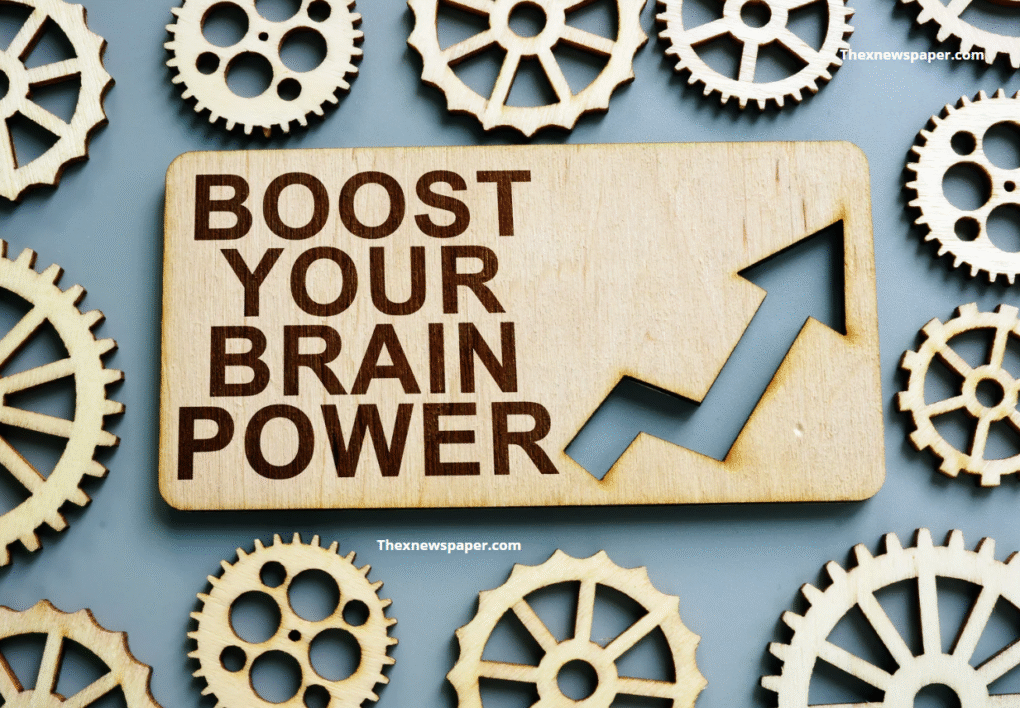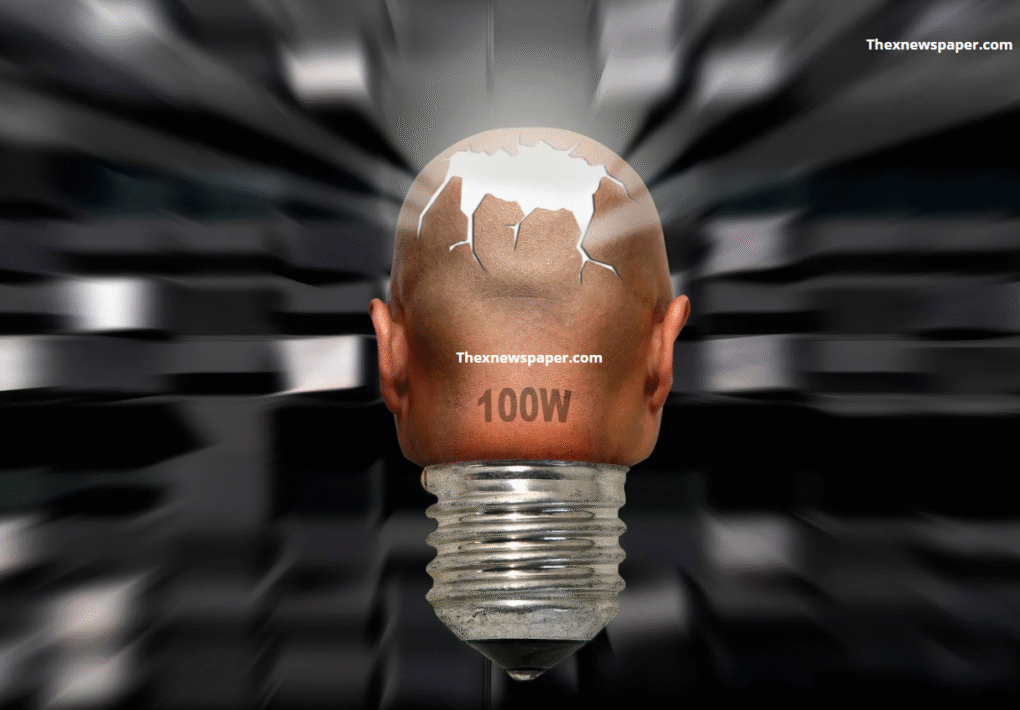Introduction
In a world that’s constantly on the move, the pressure to stay mentally sharp and physically strong has never been greater. Whether you’re a school student, working professional, homemaker, or retired elder, your body and brain crave daily support. The year 2025 brings a unique opportunity—where science meets tradition—to unlock new “zones” of growth. professionally curated with an Indian perspective. In today’s fast-paced world, success depends not just on knowledge or muscles but on a powerful balance of mind, body, and daily habits.
1. Mindset Reset Zone: Train Your Brain, Not Just Your Biceps

Why It Matters
- In 2025, strength isn’t just about muscles—it’s about mental sharpness. People with a calm, focused mind outperform in every area of life.
Action Plan
- Start your morning with 5 minutes of silence
- Follow it with gratitude journaling or deep breathing
- Use simple affirmations like “I control my focus”
Desi Wisdom
- This is nothing new to us—our ancient yogis called it Chitta Shuddhi (mind cleansing). Even 5 minutes a day will reboot your inner system.
Benefits
- Enhanced memory and decision-making
- Less anxiety, more clarity
- Daily mental recharge
2. Micro-Movement Zone: 2 Minutes, Every 2 Hours

- You don’t need a gym to get strong. In 2025, short bursts of movement every 2 hours have proven more beneficial than one big workout.
How To Do It
- Set an hourly timer
- Every 2 hours: Do 20 squats, 30 jumping jacks, or 1-minute wall sit
- Bonus: Stretch your arms and rotate your neck every 30 minutes
Desi Pro-Tip
- Doing this while making chai or during phone calls makes it effortless. Our body thrives on regular activation.
Benefits
- Boosts blood flow and metabolism
- Reduces back pain and stiffness
- Keeps energy high throughout the day
3. Gut-Brain Power Zone: Digest to Dominate

Why It Matters
- The stomach isn’t just for digestion—it’s your second brain. 90% of serotonin (the happiness hormone) is made in your gut.
Foods to Focus On
- Homemade curd and fermented pickles
- Soaked raisins and banana
- Jeera water and Ajwain tea
Ancient Connect
- In India, food was always seen as medicine. Grandma’s diet of seasonal, simple, fermented foods is now globally recognized.
Results
- Stable mood and reduced anxiety
- Sharper thinking and alertness
- Smooth digestion
4. Dopamine Detox Zone: One Hour of Pure Silence

The Problem
The Fix
- 1 hour daily: No phone, no music, no screens
- Sit with your thoughts, go for a slow walk, or write freely
Desi Version
- Try Maun Vrat—our traditional practice of silence. It reclaims your inner peace and sharpens attention naturally.
Results
- Better sleep, motivation, and self-discipline
- Mental energy reset
5. Breath Strength Zone: Unlock Pran Shakti

Why It Matters
- Oxygen is the brain’s fuel. Most people breathe shallowly—limiting focus, stamina, and clarity. Deep, rhythmic breathing supercharges your system.
How to Practice
- Anulom Vilom (alternate nostril breathing): 5 rounds in the morning
- Brahmari (humming breath): 3 minutes before sleep
Desi Superpower
- Pranayama isn’t spiritual fluff—it’s biohacking, desi style.
Benefits
- Higher oxygen, sharper memory
- Calmer mind, better blood pressure
6. Sunlight Sync Zone: Light That Heals

Why It Matters
- Modern life keeps us indoors, but sunlight is your free multivitamin. Morning light balances hormones like serotonin and melatonin.
Daily Formula
- 10–15 mins in morning sun (6–9 AM)
- Expose skin, avoid sunglasses
- Stand barefoot on grass for added earth energy
Ancient Desi Method
- Surya Snaan (sun bathing) has always been a sacred health ritual. Science now backs it.
Outcomes
- Better mood, strong bones
- Improved sleep, better hormonal health
7. Time-Blocking Lifestyle: Align With Your Body Clock

Why It Works
- Our bodies run on a 24-hour biological clock. Aligning tasks with energy peaks is a game-changer.
Ideal Daily Blocks
- 6–8 AM: Yoga, breathwork, mental clarity time
- 9–12 PM: Deep focus work
- 1–3 PM: Light work or creative tasks
- 6–9 PM: Relaxation, reflection
Indian Wisdom
From temple bells to meal timings, our ancestors lived by nature’s clock.
Benefits
- 2x more work done with half the stress
- Reduced brain fog
8. Cold-Warm Contrast Zone: Temper Shock for Strength

What’s New
- Switching between hot and cold (via baths or compresses) improves circulation, brain alertness, and recovery.
Easy Routine
- Splash face with cold water after warm bath
- Alternate warm-cold showers once a week
- Use cold packs on neck and spine after long screen time
Desi Logic
- We’ve been doing this after weddings, rituals, even farming. Science now confirms its recovery benefits.
Effects
- Reduced stress, faster muscle healing
- Better focus and freshness
9. Connection Zone: Talk, Touch, Trust

Why It Matters
- In 2025, loneliness is one of the biggest mental health killers. Human bonding releases oxytocin, the “trust hormone.”
Daily Must-Do
- One face-to-face conversation daily
- Share one meal with family
- 5-minute deep listening without judging
Desi Value
- Joint families and festivals weren’t just cultural—they were neurological medicine.
Impact
- Reduced anxiety and depression
- Stronger emotional muscles
10. Creative Expression Zone: Move Beyond Logic

Why It Works
- Creativity activates brain areas linked to memory, problem-solving, and happiness. Even 10 minutes a day is powerful.
How to Activate It
- Doodle, sing, cook, dance, or write
- Engage without judging yourself
- Share your work in small community groups
Desi Twist
- Think Rangoli, Garba, Holi, and folk songs—creativity was always part of our health culture.
Benefits
- Boosted emotional intelligence
- More joy, less stress
🧠 11. Mindset Reset Zone: Where Your Day Begins

What is it?
- This zone focuses on tuning your mind first thing in the morning—before your phone, chores, or worries hijack your focus.
Why it matters
- Your morning state decides your entire day. A calm, grateful, and focused start is like setting the GPS of your brain for success.
Action Plan
- Sit quietly for 5 minutes every morning—no screen, no rush
- Write 3 things you’re thankful for in a notebook
- Affirm aloud: “Today, I choose focus and calm.”
Traditional Wisdom
- Our elders said, “Subah ka soch, din bhar ka raja.” Morning thoughts become your day’s destiny.
Benefits
- Reduces stress and anxiety
- Boosts concentration and clarity
- Improves emotional stability
🏃♂️ 12. Micro-Movement Zone: Small Actions, Big Impact

What is it?
- Instead of waiting for a 1-hour workout, move for 2–3 minutes every couple of hours. Movement fuels energy.
Why it matters
- Long sitting leads to stiffness, fatigue, and poor blood circulation. Micro-movements break that chain.
Action Plan
- 20 squats every 2–3 hours
- 30 jumping jacks during tea breaks
- Walk while attending calls
Traditional Wisdom
- “Zyada der baithna, bimari ko bulana.” Prolonged sitting is an open invitation to health issues.
Benefits
- Maintains energy throughout the day
- Prevents body stiffness
- Enhances alertness and productivity
🍲 13. Gut-Brain Power Zone: Healthy Stomach, Healthy Mind

What is it?
- Your gut creates 90% of your serotonin—the “feel-good” hormone. What you eat affects how you think.
Why it matters
- A bloated or irritated gut causes mood swings, brain fog, and fatigue. Healing it boosts cognitive clarity.
Action Plan
- Daily bowl of curd (add jeera or jaggery)
- Soak and eat 5 raisins + 1 fig in the morning
- Ajwain water post meals
Traditional Wisdom
- “Jo khaye Ann, woh banaye Mann.” Your diet shapes your thoughts.
Benefits
- Improves memory and attention span
- Controls anxiety and mood
- Better digestion = better sleep
📴 14. Dopamine Detox Zone: Break the Craving Loop

What is it?
- Our brains are overloaded by digital dopamine—likes, reels, pings. Too much of this destroys focus and natural motivation.
Why it matters
- If you’re feeling bored, lazy, or anxious without your phone—it’s a dopamine imbalance.
Action Plan
- 1 hour daily with zero screen exposure
- Go for a slow walk or journal silently
Traditional Wisdom
Maun Vrat (vow of silence) was used by sages to reset mental noise. This is your modern version.
Benefits
- Restores natural joy and attention span
- Improves emotional regulation
- Boosts creative thinking
🌬️ 15. Breath Strength Zone: Fuel Your Brain with Oxygen

What is it?
- Proper breathing calms your nervous system and delivers oxygen directly to your brain.
Why it matters
- Stress makes your breath shallow, and shallow breathing reduces your brain’s capacity to think clearly.
Action Plan
- Morning: 5 minutes of Anulom Vilom (alternate nostril breathing)
- Night: 3 minutes of Brahmari (humming breath)
- Midday: 10 deep belly breaths before lunch
Traditional Wisdom
- Ancient texts describe breath as “prana”—the life force. A person who controls breath, controls their mind.
Benefits
- Boosts decision-making and alertness
- Calms overthinking
- Helps manage high-pressure situations
🧂 16. Salt-Sleep Zone: Repair with Rest, Not Restlessness

What is it?
- Your brain repairs itself during deep sleep. But poor sleep habits (like late-night scrolling or heavy dinners) destroy that chance.
Why it matters
- Without proper sleep, even the best habits will fail. Mental sharpness, mood, and recovery all depend on your night.
Action Plan
- Use dim yellow light post 9 PM
- Rub feet with coconut oil + pinch of pink salt
- Avoid phone and Netflix 45 mins before sleep
Traditional Wisdom
- Dadi Maa’s advice: “Raat ko jaldi so, subah chamak ke jago.”
Benefits
- Releases natural melatonin
- Improves memory retention
- Deep sleep = deeper healing
🧊 17. Cold Clarity Zone: Activate Shock-Based Growth

What is it?
- Controlled cold exposure increases brain alertness and physical resilience.
Why it matters
- Cold water hits the nervous system like a mini-challenge. Overcoming it trains your brain for other real-life pressures.
Action Plan
- End bath with 20–30 seconds of cold water splash
- Or cold face splash after exercise
Traditional Wisdom
- Sadhus have practiced cold dips in rivers for centuries to build both willpower and inner calm.
Benefits
- Shocks your body into alertness
- Reduces inflammation
- Builds tolerance to discomfort
🌱 18. Nature Immersion Zone: Green is the New Guru
What is it?
- Being around trees, plants, or rivers resets your mental balance. The more we go back to nature, the more we return to ourselves.
Why it matters
- Nature exposure boosts serotonin, reduces cortisol, and enhances long-term memory.
Action Plan
- Weekly visit to garden/park without phone
- Sit under a tree for 15 mins
- Touch soil or water with bare hands
Traditional Wisdom
- “Prakriti ke saath samay bitao, tan-man dono sudhar jaayega.” Nature heals both body and mind.
Benefits
- Improves focus and creative thinking
- Decreases anxiety and loneliness
- Balances mood hormones naturally
⌛ 19. Deep Work Zone: Block Distractions, Unlock Potential
What is it?
- It’s not about doing more. It’s about doing focused work without distractions.
Why it matters
- Shallow focus = average results. Deep work = extraordinary mastery.
Action Plan
- Use Pomodoro: 25-min work + 5-min break
- One task at a time, no tabs, no pings
- Keep a “Distraction Notebook” nearby
Traditional Wisdom
- Our ancestors performed tapasya—deep focus—to unlock their powers. This is your modern version.
Benefits
- High-quality output in less time
- Mental clarity and creative flow
- Builds work ethic and discipline
❤️ 20. Connection Zone: Strength Through Human Bonds
What is it?
- Strong relationships are the most underrated source of mind strength. Even a short conversation with a loved one can recharge your mental battery.
Why it matters
- Loneliness shrinks brain regions. Social warmth literally rewires your brain for safety and joy.
Action Plan
- Weekly dinner with family without phones
- Daily 5-min gratitude message to a friend
- Join group classes/hobby clubs offline
Traditional Wisdom
- “Dukh baantne se halka hota hai, sukh baantne se dugna.” Sharing reduces sorrow and multiplies joy.
Benefits
- Strengthens emotional immunity
- Encourages support-based mindset
- Improves mood and confidence
🙋 Frequently Asked Questions
Q1. Can Class 8–12 students follow this?
Absolutely! Every zone is written in simple, relatable language. Perfect for students, parents, and even seniors.
Q2. How long should I follow this?
Make it a 21-day challenge. Once habits kick in, you’ll naturally adopt them for life.
Q3. What if I miss a day?
No guilt. Start again the next day. Progress > Perfection.
Q4. Can I combine zones?
Yes! For example, morning breathing (Zone 5) + nature walk (Zone 8) = amazing combo.
Q5. Can students follow these strong zones daily?
Yes, absolutely! These zones are designed to be flexible and practical. Students can start with just 3–4 zones that fit their routine, such as the Mindset Reset, Gut-Brain Power, Breath Strength, and Micro-Movement zones. Over time, they can add more as they get comfortable. These habits can improve memory, reduce exam stress, and enhance concentration without needing extra tuition or pressure.
Q6. Are these habits suitable for older adults or senior citizens?
Yes, each zone is highly adaptable for seniors. For example, breath work and light micro-movements can help control blood pressure, anxiety, and joint stiffness. Gut health practices and dopamine detox also support better sleep and emotional balance. These zones help elders stay mentally sharp and physically active without heavy effort.
Q7. What if I miss a day or fail to follow all 10 zones?
You don’t have to follow all 10 zones every single day. Think of these as a toolkit—not a to-do list. If you do even 3–4 of them regularly, you’ll start noticing big results in energy, calmness, and clarity. Progress over perfection is the key here. Some zones, like breath work or morning mindset, take just 5 minutes but give all-day benefits.
Q8. Do I need to buy anything for these practices?
No, that’s the beauty of this blog. It’s 100% lifestyle-based and desi-friendly. You don’t need fancy gadgets, supplements, or subscriptions. Most of these practices use what’s already in your home—like your breath, time, curd, spices, or paper. Just consistency and honesty are your tools.
Q9. Will this work for people with anxiety or mental fatigue?
Yes, many of these zones are backed by both ancient Indian practices and modern neuroscience to help with anxiety, fatigue, and even burnout. Especially the Dopamine Detox, Breath Strength, and Gut-Brain Power Zones—they are natural ways to reset your nervous system and regain mental peace. But if you’re facing clinical anxiety, it’s always wise to consult a professional too.
if you have any problem with this content or anything else related to this blog, please contact us. link

